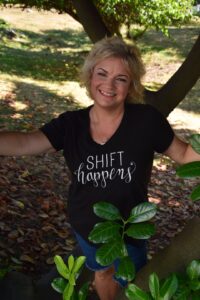Men’s 3-Days with Phil – April 6 – 8
“I feel so blessed to have found ACORN and to have the support I needed to do my work. The intensives and 3-Days have moved me further along in my recovery journey at a deeper level. “
 ACORN has a lively history of men’s workshops. Personally, I did not meet another man who was food abstinent until I was in stable recovery for over a year. I was delighted when I heard about a men’s Twelve Step group for overeaters in Los Angeles that had been meeting for over two decades.
ACORN has a lively history of men’s workshops. Personally, I did not meet another man who was food abstinent until I was in stable recovery for over a year. I was delighted when I heard about a men’s Twelve Step group for overeaters in Los Angeles that had been meeting for over two decades.
They began each meeting by saying, “There are some things that men find it very difficult to say in a female-majority meeting. This is the place where we can say it all.” With that in mind, that’s how we have begun every men’s retreat or workshop that I have led for ACORN.
I remember when we announced at an early Philadelphia retreat that one of the breakout groups would be all male. There was some loud whooping – and not just by the men. That’s when I learned that this work was even more important than I had thought.
At a men’s “3-day” at a motel in New Jersey, several men started taking turns doing tantrums. When the police knocked on the door and inquired if something was wrong, we told them, “We are practicing for the performance of a play.” It was not entirely a deception; we were practicing being truthful about our feelings in the play of life!
Another men’s gathering, this one in New Hampshire, was a bit more subdued. Group feedback regularly began with the phrase, “This is another thing I have never said at a meeting.” Men have a unique box of secrets; and it is not just their feelings about intimacy and sex. Men have been especially grateful for the opportunity to work on their recovery in groups set aside for men only.
So, we have another men’s workshop coming up in New England, this one in Charlton(outside of Boston) outside of Boston on April 6th to 8th, 2018. Men, bring your secrets and the issues about which you have hesitated being vulnerable. As with all ACORN events, we will focus on abstinence first, absolutely, and move to emotional and spiritual work in a male voice.
“I came to ACORN somewhat blind, having hit my rock bottom. I did not want to die before I tried these resources. I came in blind and I’m now getting enlightened and “ABSTINENT.”
More from Phil…
As food addicts, many of us have special awareness of eating disorders. Personally, I spent over a decade doing serious work in therapy on my ‘underlying issues’ and, while I developed some serious emotional coping skills, my problems with food just got worse.
So, many of us have had to give up the belief that we are “just emotional eaters.” Eating disorders originate in families who don’t deal with feelings well and from traumas which are pushed down; we find that foods, often special ‘comfort foods’, take away or minimize the pain. Food addiction is an entirely different disease. It is caused by specific toxic foods which change the brain biochemically and turn it into being chemically dependent on these very same foods.
With eating disorders, “It is not what you are eating, but what’s eating you.” The solution is to work towards being able to eat all foods in moderation by using emotion skills to deal with difficulty feelings and resolve prior traumas.
On the other hand, with food addiction, “It’s not the food – unless it is the food. Then it is the food – until it is not the food. Then, it is not the food.” Whew! Got it? The solution is to begin by eliminating all your binge foods completely, and then work on the deep emotional and spiritual issues.
Many people come to ACORN workshops pretty certain that they are emotional eaters, that is, bingeing, purging and/or restricting out of control because they have an eating disorder. They are confused as to whether or not they are food addicted. In fact, many are surprised to find that they would rather have an eating disorder than a food addiction. They really do not want to abstain from their ‘favorite’ foods, much less have to work with another food addict to be accountable. It is often seen as too much work. Moreover, they want to be able to eat what they want to eat, as much of it as they want, and when they want to.
The ACORN Primary Intensive is a way to learn about eating disorders and food addiction intellectually, and then match it to your own experience.
There is no better way to do so than to act as if you are food addicted with a group of other people. Do you resist surrendering toxic foods? Could it be a sign of physical craving? Do you experience symptoms of withdrawal when you abstain? Does the craving diminish or go away after a few days of abstinence? What do you learn from looking at ways you are secretive or manipulative about food? Has dieting and other ways of controlling your weight worked? Can you identify specific incidents when you were powerless over food? What do you learn as you discover the emotional, mental and spiritual distortions with these physical attempts to control?
That’s what the work of the ACORN Primary Intensive is all about. By actually doing the work of food addiction recovery, you don’t try to think your way into recovery actions; rather, if you are food addicted, you act your way into accurate thinking!
For many, there is a second important learning. When abstinent, difficult feelings often come to the surface and the old coping mechanisms of food are no longer of any help. Personally, that’s what happened for me in early recovery. When I was abstinent, feelings of fear, anger, sadness and willfulness arose that I never learned to deal with while in therapy and still active with the food.
So, some of us are both food addicted and eating disordered. I had to learn how to deal with both of these brain diseases through abstinence first. That is exactly what we work to help people learn to do at the ACORN Primary Intensive. Please join us. I would love to see you!

 It’s hard to believe that it’s February already! I have been in Florida for over three weeks and, while I am enjoying the rain-free days, I have to say it’s much colder than I expected. I am hopeful the beautiful sunshine will continue to warm the air.
It’s hard to believe that it’s February already! I have been in Florida for over three weeks and, while I am enjoying the rain-free days, I have to say it’s much colder than I expected. I am hopeful the beautiful sunshine will continue to warm the air.
